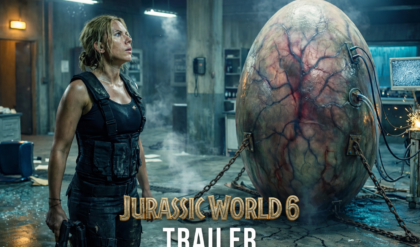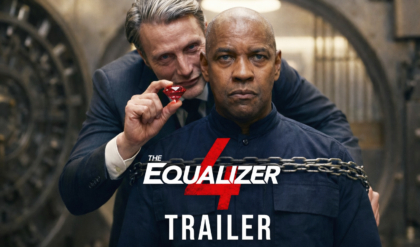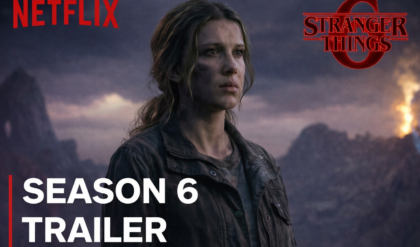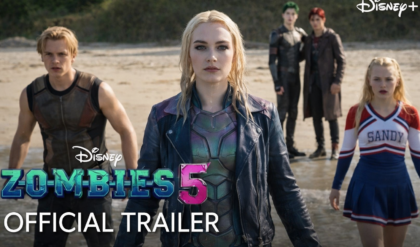The release of Assassin’s Creed Shadows on March 20, 2025, was supposed to be a triumphant moment for Ubisoft—a chance to solidify its pivot from stealth-action roots to the expansive, choice-driven world of role-playing games (RPGs). Set in the visually stunning backdrop of feudal Japan, with dual protagonists Naoe and Yasuke promising varied gameplay, the game had all the ingredients to be a genre-defining masterpiece. Yet, as players and critics dive into this latest installment, a stark realization emerges: Assassin’s Creed Shadows not only fails to deliver a compelling RPG experience but also exposes Ubisoft’s fundamental misunderstanding of what makes the genre tick. This article explores why Shadows falls flat as an RPG, why Ubisoft seems incapable of crafting a good one, and what this means for the future of the iconic franchise.
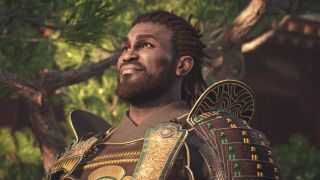
The Promise of Shadows: A Bold Vision
Since Assassin’s Creed Origins in 2017, Ubisoft has been steadily transforming its flagship series into a full-blown RPG, introducing skill trees, dialogue choices, and sprawling open worlds. Odyssey and Valhalla leaned hard into this shift, offering players vast maps, loot systems, and narrative branches—hallmarks of modern RPGs like The Witcher 3 or Skyrim. With Shadows, Ubisoft aimed to refine this formula, blending the series’ stealth legacy with RPG depth in a long-requested Sengoku-era Japan setting. The dual-protagonist system—Naoe, a nimble shinobi, and Yasuke, a powerful samurai—promised a dynamic interplay of playstyles, while the premise of dismantling a shadowy organization hinted at a rich, player-driven story. On paper, it sounded like Ubisoft was finally ready to compete with the RPG big leagues. The reality, however, is a different story.
A Hollow Core: The RPG Cosplay Problem
At its heart, Assassin’s Creed Shadows feels like an action game masquerading as an RPG—a criticism echoed across reviews and player feedback. PC Gamer’s Matt Killeen sums it up brutally: “Assassin’s Creed is an action series cosplaying an RPG… Embarking upon any of Shadows’ quests reveals the same hollowness, largely amounting to either speaking to someone or killing someone—sometimes both.” This lack of depth permeates every aspect of the game’s supposed RPG systems. The skill trees for Naoe and Yasuke, while extensive, offer little meaningful progression beyond incremental stat boosts or recycled abilities. Dialogue choices, a cornerstone of RPG immersion, are largely cosmetic, with outcomes rarely diverging based on player decisions. In one instance, choosing to spare or kill an enemy yields the same cutscene with minor dialogue tweaks—a far cry from the branching narratives of true RPGs.
The open world, while breathtakingly detailed with its castles, temples, and misty bamboo groves, is a shallow playground. Side quests boil down to repetitive fetch-or-kill tasks, lacking the nuanced storytelling or moral ambiguity that define RPGs like Dragon Age or Fallout. Even the main story, centered on unmasking the Shinbakufu organization, feels like a checklist of assassinations rather than a cohesive, player-shaped epic. Ubisoft ticks the RPG boxes—loot, skill trees, dialogue options—but fails to infuse them with purpose or soul, leaving Shadows feeling like a hollow imitation of the genre it aspires to join.
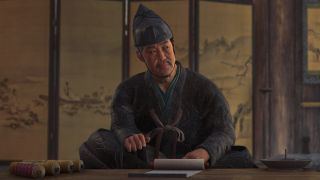
Dual Protagonists, Singular Disappointment
The dual-protagonist system, a headline feature of Shadows, could have been a game-changer, offering players two distinct lenses through which to experience Japan’s Sengoku period. Naoe’s stealth-focused gameplay harkens back to classic Assassin’s Creed, with tools like a grapple hook and the ability to snuff out lights, while Yasuke’s brute-force combat caters to fans of the series’ RPG evolution. Yet, this ambitious design falters in execution. Reviews, such as IGN’s Matt Killeen’s, note an imbalance: “There are remarkably few quests where Naoe isn’t better suited for the task at hand.” Yasuke’s combat, while satisfyingly weighty, feels redundant in a game that rewards stealth over confrontation, rendering half the protagonist duo underutilized.
Moreover, the narrative fails to capitalize on their dynamic. Naoe and Yasuke’s relationship—starting as adversaries and growing into allies—should have been the emotional core of Shadows. Instead, their interactions are sparse and underdeveloped, with the story prioritizing historical cameos (Oda Nobunaga, Hattori Hanzo) over character depth. RPGs thrive on player agency and character-driven stories, but Shadows treats its protagonists as interchangeable tools rather than evolving personalities shaped by choice—a fatal misstep for a genre built on immersion.
Ubisoft’s Misadventure in RPG Territory
Why does Shadows stumble so badly as an RPG? The answer lies in Ubisoft’s broader approach to game design. Historically, the studio excels at crafting polished, formulaic experiences—think Assassin’s Creed II’s tight stealth-action loop or Far Cry’s chaotic sandboxes. RPGs, however, demand a different mindset: one that prioritizes player freedom, narrative consequence, and systemic depth over scripted spectacle. Ubisoft’s track record suggests it’s unwilling—or unable—to fully embrace this shift. Origins, Odyssey, and Valhalla introduced RPG elements, but their bloat and reliance on Ubisoft’s trademark map-clutter (towers, collectibles, repetitive outposts) diluted any true role-playing potential. Shadows follows suit, refining some mechanics (less cluttered maps, tighter combat) but never breaking free from the action-first mold.

Contrast this with RPG titans like CD Projekt Red or Bethesda. The Witcher 3 weaves a tapestry of choice and consequence, where even minor decisions ripple through the world. Skyrim offers unparalleled freedom, letting players define their journey through exploration and emergent gameplay. Ubisoft, by comparison, seems content to layer RPG trappings onto a linear action framework, unwilling to sacrifice control for the chaos and unpredictability that define the genre. As Vice’s Matt Killeen notes, “Ubisoft knows how to make a gorgeous game, but the lack of polish is inevitably their downfall”—a polish that, in RPG terms, means depth, not just visual fidelity.
A Troubled Launch and a Tired Franchise
Shadows didn’t just disappoint as an RPG; it arrived amid a storm of external challenges that amplify its shortcomings. Delayed twice from its original November 2024 release, the game faced scrutiny over technical polish and cultural controversies, including debates over Yasuke’s historical portrayal as a Black samurai. While the game runs smoothly on high-end PCs and consoles (RTX 4090, PS5, Xbox Series X), per Ubisoft’s tech Q&A, its Steam Deck verification and MacOS port show ambition—but not enough to offset the core design flaws. Reviews are mixed: GameRadar praises its “confidence, texture, and purpose,” while NPR’s Stephen Totilo warns, “Good may not be good enough to save Ubisoft,” a company reeling from Star Wars Outlaws’ flop and layoffs.
Fan sentiment on X echoes this divide. @RICEY300 laments, “Starting using RPG elements for #AssassinsCreed games… It’s always ruined the story with weak gameplay,” while @Pink_Kinoo critiques the “terrible parkour” and “inconsistent quality.” After nearly two decades, Assassin’s Creed fatigue is real, and Shadows’ RPG misfire only deepens the sense that Ubisoft is out of touch with what fans—and the genre—demand.
What Went Wrong: A Failure of Vision
So, what went wrong with Shadows as an RPG? First, its systems lack depth. Skill trees and loot are abundant but uninspired, offering no real build variety or strategic choice. Second, player agency is an illusion—dialogue options and quest outcomes rarely matter, undermining the role-playing promise. Third, the open world, while gorgeous, feels like a backdrop for action rather than a living ecosystem that reacts to the player. Finally, Ubisoft’s refusal to deviate from its action-adventure comfort zone stifles any chance of true RPG innovation. As PC Gamer’s review states, “There’s not enough here to even call it bad quest design”—it’s simply nonexistent.
This isn’t just a Shadows problem; it’s a Ubisoft problem. The studio’s insistence on quantity over quality—massive maps, endless side content—clashes with the RPG ethos of meaningful engagement. Ghost of Tsushima, a rival samurai epic, succeeds where Shadows fails by blending action with a focused narrative and emergent world interactions. Ubisoft, meanwhile, seems stuck chasing trends rather than mastering them.
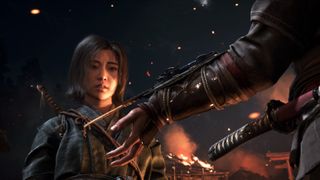
The Future: Can Ubisoft Ever Make a Good RPG?
Assassin’s Creed Shadows proves that Ubisoft has no idea how to make a good RPG—and, barring a radical rethink, never will. The talent is there: the game’s visuals, combat refinements, and historical detail are undeniably impressive. But talent alone can’t bridge the gap between action spectacle and RPG substance. For Ubisoft to succeed in this space, it must shed its formulaic tendencies, embrace risk, and prioritize player-driven storytelling over scripted set-pieces. Until then, Shadows stands as a cautionary tale—a beautiful, ambitious failure that highlights the limits of Ubisoft’s RPG aspirations.
For fans, it’s a bittersweet moment. Shadows offers fleeting joys—Naoe’s stealth kills, Yasuke’s visceral battles, Japan’s stunning vistas—but they’re overshadowed by a hollow core. As the credits roll after 40-60 hours, you’re left with a question: if Ubisoft can’t crack the RPG code after three tries, should it stop trying? Perhaps it’s time to return to the series’ stealth-action roots—or hand the reins to a studio that understands what role-playing truly means. What do you think of Shadows’ RPG misadventure? Share your thoughts below!

